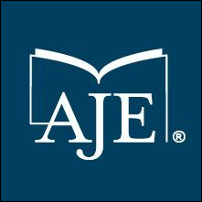Towards Sustainable Empowerment: A Guided Micro- Entrepreneurship Program for Unlocking Welfare Dependency in Malaysia
DOI:
https://doi.org/10.64423/arpa.v32i1.10Keywords:
Sustainable empowerment, Guided Micro-Entrepreneurship, Welfare DependencyAbstract
Productive Welfare under the Social Welfare Department Malaysia aims to end welfare assistance by developing individuals’ capabilities through government programs. The guided micro-entrepreneurship program is one of the means of empowerment, and sustaining it after the program ends is a challenge, especially for vulnerable communities such as Persons with Disabilities (PwD), single mothers, and the poor. This study explores the sustainable empowerment process among guided microentrepreneurs in a productive welfare program by addressing how sustainable empowerment occurs among guided microentrepreneurs. The study involved eight participants from Negeri Sembilan, Malaysia, selected through purposive sampling from the Social Welfare Department Malaysia, 2 Years Exit Programme (2YEP). Data collection included interviews, observations, and document analysis. Thematic analysis reveals that sustainable empowerment is achieved through coping strategies, lifelong learning, and effective business management. Hence, achieving this requires consistent efforts, good program governance, and full support from the family and community. In conclusion, ending the cycle of welfare dependency and driving it into self-reliance requires whole-of-government and whole-of-nation involvement, long-term program planning, and utilization of coping resources, namely social capital, attitude, material, spirituality, and psychology. Empowerment gains significance when welfare beneficiaries embrace independence from assistance and contribute to the welfare of others.
References
Abravani, P., & Gharibzadeh, S. (2020). Coping Strategies During COVID-19 Outbreak in Islamic Republic of Iran. Journal of Experimental and Clinical Neurosciences, 7(2). https://doi.org/10.13183/jecns.v7i2.118
Bourdieu, P. (2018). The forms of capital. In M. Granovetter & R. Swedberg (Eds.), The Sociology of Economic Life (3rd ed.) (pg. 78–92). Routledge. https://doi.org/10.4324/9780429494338
Boyle, E. T. (2019). The bootstraps have snapped : the stigmatization of those on American welfare in present day. [Degree thesis, Vassar College].
Bukowski M., & Kreissl K. (2021). Empowerment, Poverty, and Vulnerability. In W. Leal Filho et al. (eds.), No Poverty, Encyclopedia of the UN Sustainable Development Goals. doi: https://doi.org/10.1007/978-3-319-69625-6_131-1
Chen, H. Y., & Boore, J. R. P. (2009). Translation and back‐translation in qualitative nursing research: methodological review. Journal of Clinical Nursing, 19(1-2), 234 – 239. doi: 10.1111/j.1365- 2702.2009.02896.x
Dewan Bahasa dan Pustaka. (2015). Kamus dewan [Dictionary]. (4th ed.).Kuala Lumpur.
Department of Social Welfare Malaysia. (2021). Laporan Statistik Jabatan Kebajikan Masyarakat 2021.[Social Welfare Department Statistical Report 2021]. https:// www.jkm.gov.my/ jkm/index.php?r=portal/articles&id=U0dpTUVpRXlyYUlFVFFLUmVnUVJUdz09
Department of Social Welfare Malaysia. (2014). Laporan kemajuan geran pelancaran. [Launch Grant Progress Report].[Document not published]. Jabatan Kebajikan Masyarakat, Kementerian Pembangunan Wanita, Keluarga dan Masyarakat.
Department of Social Welfare Malaysia. (2016a). Laporan statistik Jabatan Kebajikan Masyarakat 2016. [Social Welfare Department Statistical Report 2016]. Jabatan Kebajikan Masyarakat, Kementerian Pembangunan Wanita, Keluarga dan Masyarakat. http://www.jkm.gov.my /jkm/uploads/files/ penerbitan/Buku statistik 2016.pdf
Department of Social Welfare Malaysia. (2016b). Laporan Tahunan 2016 Keterangkuman Sosial ke arah Kesejahteraan.[2016 Annual Report Social Inclusion towards Wellbeing]. Jabatan Kebajikan Masyarakat, Kementerian Pembangunan Wanita, Keluarga dan Masyarakat. https://www.kpwkm.gov.my/kpwkm/uploads/files/Penerbitan/KPWKM_AR2016%20(Guide).pdf
Department of Social Welfare Malaysia. (2020b). Laporan pergerakan pendapatan peserta 2YEP tahun 2019. [Income movement report of 2YEP participants in 2019]. Jabatan Kebajikan Masyarakat. [Dokumen not published]. Jabatan Kebajikan Masyarakat, Kementerian Pembangunan Wanita, Keluarga dan Masyarakat.
Department for International Development. (1999). Sustainable livelihoods guidance sheets. Department for International Development (DFID). https://www.livelihoodscentre.org/documents/114097690/114438878/Sustainable+livelihoods+guidance+sheets.pdf/594e5ea6-99a9-2a4e-f288-cbb4ae4bea8b?t =1569512091877
Drakakis-Smith, D. (1995). Third world cities : Sustainable urban development,1. Urban Studies, 32(4–5), 659–677. https://doi.org/10.1080/00420989 550012825
Fauziah, A., Najah, R., Khairul Azman, M. S., Lutfan, J., Zahrul Akmal, D., Harliana, H., Sharifah Khadijah, S. A. B., & Shakila, A. (2017). Applying empowerment approach in community development. The 1st International Conference on Social Sciences, November, 503–509. https://jurnal.umj.ac.id/index.php /icss/article /view/2359
Glaser, B. G., & Strauss, A. L. (1967). The discovery of grounded theory strategies for qualitative research (Edisi keempat). Aldine Transaction A Division of Transaction Publishers.
Hlahla, S., Goebel, A., & Hill, T. R. (2016). Green economy: A strategy to alleviate urban poverty and safeguard the environment? KwaZulu-Natal, South Africa. Urban Forum, 27(1), 113–127. https://doi.org/10.1007/s12132-015-9263-7
Holford, J. (2017). Local and global in the formation of a learning theorist: Peter Jarvis and adult education, International Journal of Lifelong Education, 36:1-2, 2-21, https://doi.org/10.1080/02601370.2017.1299994
Jaganathan, J. (2015). Participation in productive welfare and individual empowerment among welfare recipients in Selangor. Dalam AeU International Research Conference 2015 (pg.22-41). http://ur.aeu.edu.my/id/eprint/34
Jaganathan, J. (2016). Recipient welfare empowerment and sustainable productive welfare in the state of Selangor. [PhD Thesis, Asia e University]. Digital Archive of Asia e University. https://online.fliphtml5.com/sppgg/rqza/#p=2
Jean-Baptiste, C. O., Herring, R. P., Beeson, W. L., Dos Santos, H., & Banta, J. E. (2020). Stressful life events and social capital during the early phase of COVID-19 in the U.S. Social Sciences & Humanities Open, 2(1), 100057. https://doi:10.1016/j.ssaho.2020.100057
Khairul Amri, A. (2015). Pendekatan kebajikan produktif di kalangan usahawan kebajikan di Kedah: Satu penilaian. [Productive welfare approach among welfare entrepreneurs in Kedah: An assessment ].[Masters Thesis, Universiti Sains Malaysia]. Digital Archive of Universiti Sains Malaysia. http://eprints.usm.my/31548/
Khairul Amri, A. (2019, April 27-27). Keberkesanan sistem pengurusan kes (CMS) kerja sosial dalam 2 Years Exit Programme (2YEP) Jabatan Kebajikan Masyarakat. [The effectiveness of the social work case management system (CMS) in the 2 Years Exit Programme (2YEP) of the Department of Social Welfare.]. [Presentation of Working Papers]. MASW-JKM-ISM International Social Work Symposium 2019. http://www.masw.org.my /symposium/journals/ empowering_people_ inclusiveness.pdf
Klopper, H. (2008). The qualitative research proposal. Curationis, 31(4), 62–72. doi: 10.4102/ curationis.v31i4.1062
Kuratko, D. F., & Hornsby, J. S. (2018). New venture management: The entrepreneur’s roadmap (2nd ed.). Routledge.
Lazarus, R. S., & Folkman, S. (1984). Stress, appraisal, and coping. Springer Publishing Company, Inc.
Maclean, M. E. (1977). Learning theory and chronic welfare dependency : A hypothesis of etiological and contingency relationships. Journal of Behavior Therapy and Experimental Psychiatry, 8(3), 255–259. https://doi.org/ 10.1016/0005-7916(77)90063-5
Marshall, C., & Rossman, G. B. (2011). Designing qualitative research (5th ed.). Sage Publications.
Miles, M. B., Huberman, A. M., & Saldana, J. (2014). Qualitative data analysis: A methods sourcebook (Edisi ketiga). SAGE Publications, Inc.
Muna, S., Haslinda, H., Mass Hareeza, A., & Noor Azman, A. (2019). The influence of religion on entrepreneurial behavior: A review on the roles of emotion and religious motivation. Journal of Academic Research in Business and Social Sciences, 9(12), 224–241. https://doi.org/10.6007/IJARBSS/v9-i12/6701
Murray, C. (1984). Losing ground: American social policy, 1950-1980. In Population and development review (Vol. 11, Issue 4). Basic Books. https://doi.org/10.2307/1973464
Nadisa, A. (2011). Polisi strategi pembangunan keusahawanan melalui projek pembasmian kemiskinan di perbandaran (P2KP) kajian implikasi masyarakat Islam di Cirebon, Jawa Barat, Indonesia. [Entrepreneurial development strategy policy through the urban poverty eradication project (P2KP) study of the implications of the Muslim community in Cirebon, West Java, Indonesia. ].[Masters thesis, Universiti Malaya]. Digital Archive of Universiti Malaya. http://studentsrepo.um.edu.my/5140/
Nancy: JKM Distributed RM2.4 Billion to Over 500,000 Aid Recipients in 2022. (2023, March 30). The Sun Daily. https://www.thesundaily.my/local/nancy-jkm-distributed-rm24-billion-to-over-500000-aid-recipients-in-2022-KI10812459
Nieto, M., & González-Álvarez, N. (2016). Social capital effects on the discovery and exploitation of entrepreneurial opportunities. International Entrepreneurship and Management Journal, 12(2), 507–530. https://doi.org/10.1007/s11365-014-0353-0
Pappas, E. C. (2013). Individual sustainability: Preliminary research. Proceedings - Frontiers in Education Conference, FIE, 1631–1636. https://doi.org/10.1109/ FIE.2013.6685115
Productive Welfare Division. (2016). Terma rujukan pengurusan projek rintis 2 Years Exit Programme. Jabatan Kebajikan Masyarakat. http://www.jkm.gov.my/jkm/uploads/files/TOR-Terma%20 Rujukan%20 Projek % 20Rintis%202YEP-edited%20terkini1.pdf
Rappaport, J. (1981). In praise of paradox: A social policy of empowerment over prevention. American Journal of Community Psychology, 9(1), 1–25. https://doi.org/10.1007/BF00896357.
Sajiah, Y., Azahari, R., & Muhammad Shukri, B. (2016). Pengaruh pengurusan risiko kepada prestasi perusahaan kecil dan sederhana : Pendekatan ERM. [The effect of risk management on the performance of small and medium enterprises: The ERM approach]. Journal of Human Development and Communication, 5, 103–112. http://repo.uum.edu.my /21969/
Sharifah Norazizan, S. A. R., Tengku Aizan, H., Laily, P., Sharifah Azizah, H., Amna, M. N., Faizah, M., Koh, T.W., Judhiana, A. G., Ng, K. Y., Chai, S.T., Mohd Rizal, H., & Mohamad Fazdillah, B. (2017). Laporan akhir kajian keberkesanan bantuan kewangan Jabatan Kebajikan Masyarakat, Kementerian Pembangunan Wanita, Keluarga dan Masyarakat [Final report of the study of the effectiveness of financial assistance of the Department of Social Welfare, Ministry of Women, Family and Community Development]. Universiti Putra Malaysia Consultancy & Services Sdn Bhd. http://www.jkm.gov.my/jkm/uploads/files/penerbitan/ Laporan%20Akhir%20JKM%20Bantuan%20Kewangan%20220517_print.pdf
Simi, S. R. (2011).Towards sustainable entrepreneurship and social development for rural women in Bangladesh. [Masters Thesis, Murdoch University]. Digital archive of Murdoch University. https://researchrepository.murdoch.edu.au/id/ eprint/8892/
Spicker, P. (2011). Stigma and social welfare (2nd ed.). Creative Commons. http://openair.rgu.ac.uk
United Nations Educational Scientific and Cultural Organization. (2017). Education for sustainable development goals learning objectives. https://www.bne-portal.de/sites/default/files/downloads/publikationen/unesco_education_for_sustainable_development_goals_learning_objectives.pdf
The United Nations High Commissioner for Refugees. (2008). A community-based approach in UNHCR operations. https://www.unhcr.org/en-my/publications/ legal/47ed0e212/community-based-approach-unhcr-operations. html
Zakiyah, J., & Norzalinda, M. A. H. (2018). Poverty eradication through productive welfare approach in Malaysia. International Journal of Academic Research in Business and Social Sciences, 8(9), 1186–1192. https://doi.org/ 10.6007/IJARBSS/v8-i9/4690
Zurinawaty, M., Nur Saadah, M.A., & Nor Jana, S. (2020). Kebajikan Produktif: tahap dan hubungan kesejahteraan, tingkah laku dan pengalaman kewangan dalam kalangan peserta Azam Tani FAMA [Productive Welfare: levels and relationships of well-being, behavior and financial experience among FAMA's Azam Tani participants]. JURNAL PSIKOLOGI MALAYSIA, 34(2), 13-27. http://spaj.ukm.my/ppppm/jpm/article/view/558
Downloads
Published
Issue
Section
License
Copyright (c) 2024 Putri Noorafedah Megat Tajudin

This work is licensed under a Creative Commons Attribution-NonCommercial 4.0 International License.













